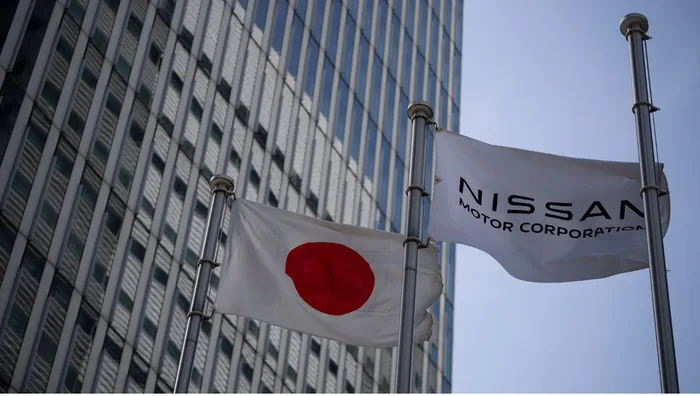
Nissan signage at Nissan headquarters in Yokohama, Tuesday, May 13, 2025.
Image: Louise Delmotte/AP Photo
Money-losing Japanese automaker Nissan is banking on its latest “e-Power” technology for a turnaround.
A kind of hybrid, e-Power comes equipped with both an electric motor and gasoline engine, much like the Toyota Motor Corp.’s Prius. It’s different from a Prius in that it doesn’t switch back and forth between the motor and engine during the drive.
That means the car always is running on its EV battery, ensuring a quiet, smooth ride.
“Nissan has a proud history of pioneering innovative technology that sets us apart,” chief technology officer Eiichi Akashi told reporters on the sidelines of a test-drive at its Grandrive course outside Tokyo.
The advantage of e-Power vehicles is that they never need to be charged like EVs do. The owner just fuels up at a gas station and the car never runs out of a charge.
Nissan Motor Corp., which racked up a $4.5 billion loss for the fiscal year through March, sorely needs a hot-seller, especially in the lucrative North American market.
But the U.S. market is proving a big headache for all the Japanese automakers because of President Donald Trump’s tariff policies.
To achieve a turnaround, Nissan is working on reducing costs, strengthening business partnerships, and redefining its lineup.
That’s where e-Power fits in, according to Akashi.Yokohama-based Nissan announced earlier this month that it’s slashing about 15% of its global workforce, or about 20,000 employees, and reducing the number of its auto plants to 10 from 17, under an ambitious recovery plan led by its new chief executive Ivan Espinosa.Nissan officials did not give a price for the upcoming e-Power models.
The one other automaker that offers a similar technology is kei (tiny car) manufacturer Daihatsu Motor Co.E-Power is already offered on the Nissan Qashqai and X-Trail model in Europe, and the Note in Japan.
The upgraded version will be offered in the new Rogue in the U.S.Nissan, a pioneer in EVs with its Leaf, which went on sale in 2010, is also preparing beefed up EV models. It’s also working on a solid-state battery that is expected to replace the lithium-ion batteries now widely used in hybrids, EVs, and e-Power models.Analysts say Nissan is in danger of running out of cash and needs a partner. Speculation is rife that its Yokohama headquarters building will get sold, or one of its Japanese plants will be turned into a casino.
Nissan started talks last year with Japanese rival Honda Motor Co. for a business integration but announced in February that it was dropping the talks.
